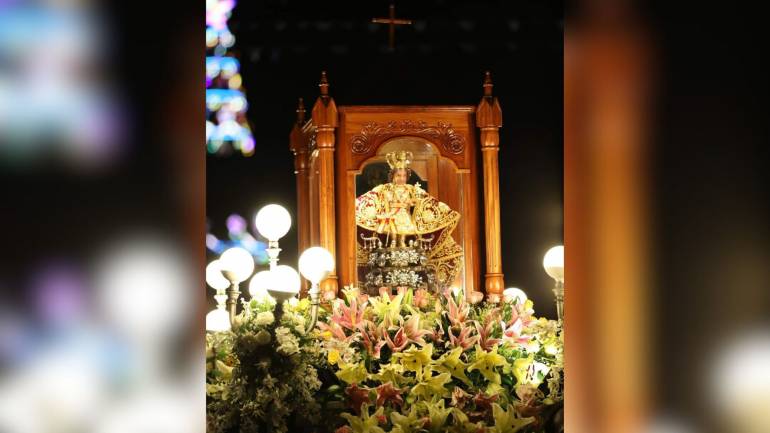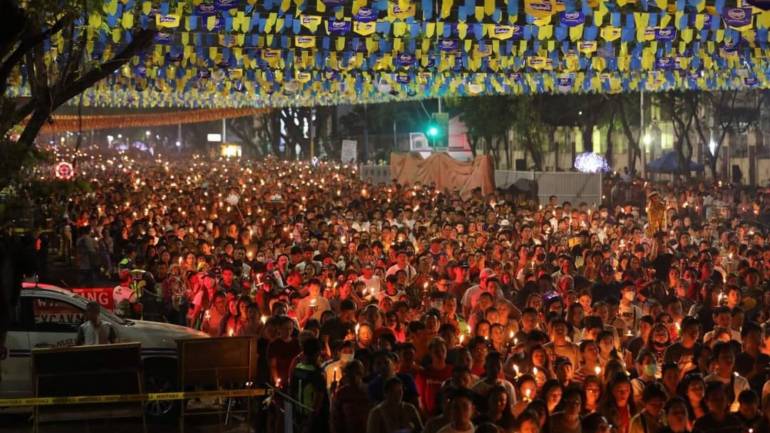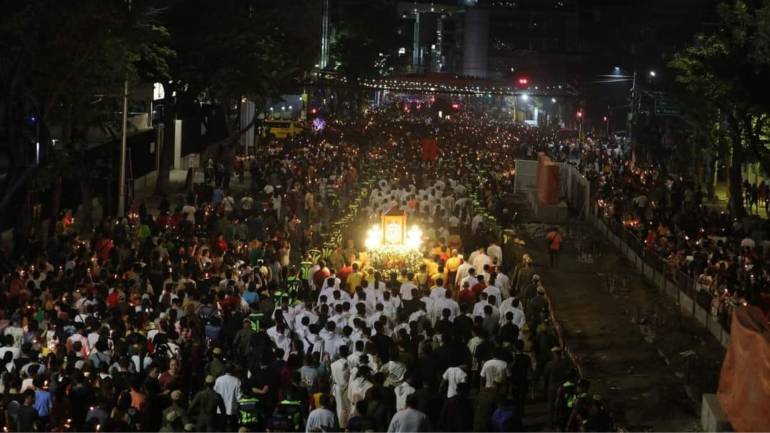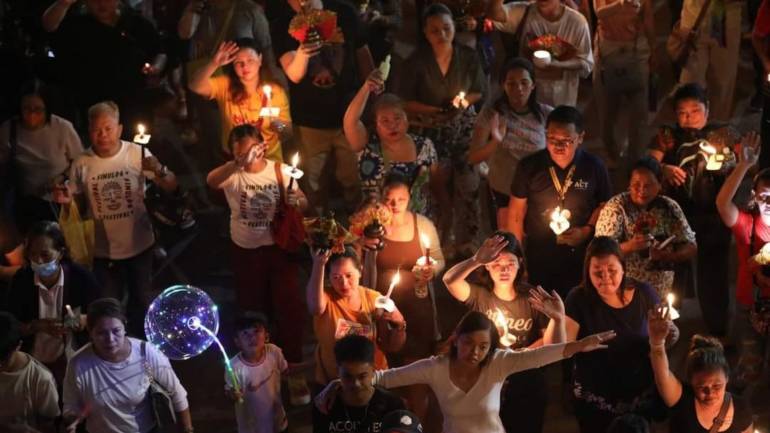“Go Beyond Personal and Individualized Faith; Be Instruments of Societal Transformation,” Augustinian Priest tells Devotees of Santo Niño de Cebu
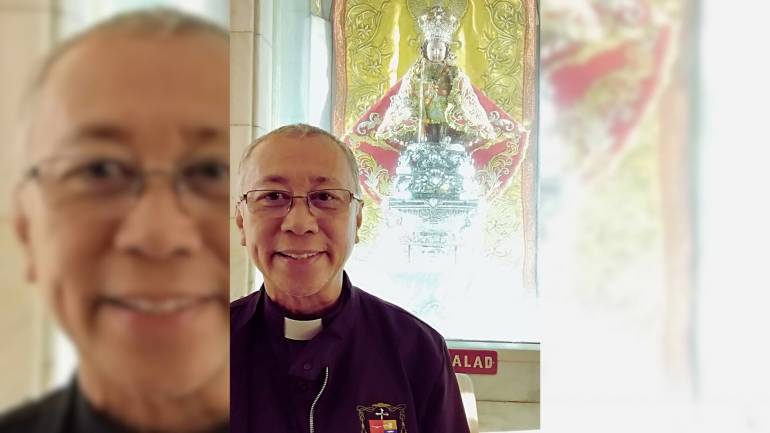
Father Tito Soquiño, an Augustinian friar, urged Santo Niño de Cebu devotees to drive social change by transcending individual faith and promoting ethical and responsible AI use.
On Day 1 of the 9-day novena preceding the Fiesta Senyor on January 21, in Cebu, Philippines, Fr. Soquiño challenged devotees: "How can the devotion to the Santo Nino be an instrument for societal transformation"?
There is a need for popular religiosity “to go beyond personal, individualized faith as we journey together in synodality towards an ethical and responsible use of AI,” the priest told RVA.
The Augustinian Order is the keeper of the Santo Niño de Cebu, the country’s
oldest relic. The religious activity coincides with civic festivities related to Cebu City’s fiesta celebration, Sinulog.
The religious rituals opened on January 11, 2024, with a dawn foot procession known as “Walk with Jesus.” Devotees wake up before 4 a.m. for a prayerful walk along the city streets, holding lighted candles and images of the Child Jesus and the Blessed Virgin Mary.
The foot procession winds up in the Minor Basilica of the Holy Child, popularly known as the Basilica del Santo Niño, the oldest Roman Catholic Church in the Philippines.
According to oral history, Spanish conquistador Miguel Lopez de Legazpi, who financed the expedition for the Spanish crown to conquer the Philippines, found the image on the church grounds in the mid-16th century. Some relatives and Fray Andres de Urdaneta of the Order of St. Augustine joined him in the military campaign.
The church's destruction during the early days left it in ruins, but the image miraculously survived, giving rise to the backstory of the dark relic that is worshipped and honored every third Sunday of January.
Fr. Soquiño’s challenge to devotees of the Santo Nino was a reaction to the message of Pope Francis on the World Day of Peace on the theme “Artificial Intelligence and Peace.”
According to Vatican News, the pope “explored the ethical dimension of new AI technologies, saying they are revolutionizing all spheres of human life. New digital tools are even now changing the face of communications, public administration, education, consumption, personal interactions, and countless other aspects of our daily lives.”
The Pope also urged world leaders to put in place policies that ensure AI development will "ultimately serve the cause of human fraternity and peace."
The message that came at the start of the New Year had the Holy Father praying that “the rapid development of forms of artificial intelligence will not increase cases of inequality and injustice all too present in today’s world, but will help put an end to wars and conflicts and alleviate many forms of suffering that afflict our human family."
Fr. Soquiño is currently based on Siargao Island as Superior of the Augustinian Residence of Burgos (Siargao Island), Surigao del Norte.
Prior to this assignment, he was Vice President for Student Affairs and External Relations at Colegio San Agustin in Bacolod City, the capital of Negros Occidental. During his academic stint, Fr. Soquiño was Project Director of “Scanning the Artificial Intelligence Landscape,” or SAIL, funded research that studied the impact of Artificial Intelligence on society with an aim at promoting ethical and responsible use of AI.
Our end goal was to propose state policies that protect workers who will eventually be replaced by AI in the workforce.
Fr. Soquio revealed during an interview with Radio Veritas Asia that the initial results in the fields of finance and health care supported the Holy Father's call to carefully consider the ethical implications of AI. Furthermore, the priest said that AI has been weaponized as drones in the ongoing war between Russia and Ukraine.
In the past, the Augustinian friar mobilized a group of young devotees who brought to the depths of the Danajon Bank in Bohol images of the Santo Nino and the Blessed Virgin Mary.
Danajon Bank is the double barrier reef in Bohol, one of six double barrier reefs in the world.
“These reefs are important for the marine ecosystem but are also fragile because of illegal fishing, destruction of marine habitats and overfishing, and coral bleaching due to climate change.”
Bringing the sacred images into the depths of the Danajon Bank underscores “the spiritual dimension of ecology,” Soquiño emphasized. - By Malou Guanzon Apalisok
Radio Veritas Asia (RVA), a media platform of the Catholic Church, aims to share Christ. RVA started in 1969 as a continental Catholic radio station to serve Asian countries in their respective local language, thus earning the tag “the Voice of Asian Christianity.” Responding to the emerging context, RVA embraced media platforms to connect with the global Asian audience via its 21 language websites and various social media platforms.





